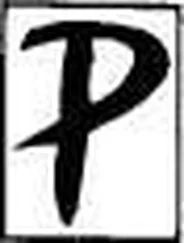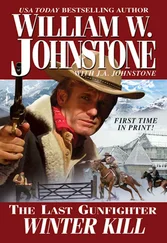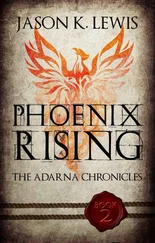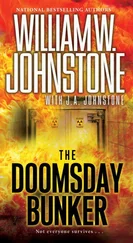“I doubt anyone survived,” Jake said.
“Including the helicopter,” Deon said. “We’re going to have to start over from scratch.”
“Scratch is right,” John said. “Because there isn’t anything left we can build from. We are, as they say, SOL.”
“What about one of the other airfields?” Marcus suggested.
“No good,” Jake said, shaking his hand. “One of the last things we did while the post was still functioning was move all the UH-sixties to Hanchey. If we can’t put together another one from what we have here, we are going to have to come up with another plan.”
“A Chinook?” Marcus suggested.
“I don’t think so,” John said. “They’ve got more parts than a Blackhawk; it’ll be harder coming up with all we need for them than it was for the zero-seven-seventeen.”
“What are we going to do with Sergeant Major Matthews?” Karin asked.
“We’re going to bury him,” Jake said.
“Where? How? There is nothing here but blacktop and cement,” Marcus said.
“There’s real ground behind the hangar,” Jake said. “And an old warrior like Clay would probably want to be buried on an Army base, even if there is no Army anymore. If a couple of you will help me carry Sarge around back.”
“We’ll get him,” Marcus said, nodding toward the others.
Willie and Marcus took Clay’s arms, Deon and John took his feet. Jake, Karin, and Julie followed them around the side of the hangar.
The rain from the storm made the ground soft, so it took no more than half an hour to dig a grave for Clay. With his blood-soaked shirt still wrapped around his head, they lowered him gently into the grave.
“I wish we had a flag to drape over him,” Karin said.
“We do!” Deon said with a big smile. “I saw one while I was up in the tower. I’ll go get it.”
“You knew the sergeant major a long time, didn’t you, sir?” Marcus asked. For the moment, the rank and military courtesy seemed appropriate.
“Yes,” Jake answered. “I don’t think I would have gotten through Officer Candidate School without him.”
A moment later Deon returned with the flag. It was a storm flag rather than a garrison flag, so it was considerably smaller.
“It’s not big enough to drape over him,” Julie said.
“We’ll fold it into the triangle, then put it in his hands. He will like that,” Jake said.
“I’ve often wondered why we fold a flag like that,” Julie said. “It has to be symbolic of something.”
“It is,” Jake said. “Folded properly, it takes exactly thirteen folds, two lengthwise and eleven triangular. That represents the thirteen original states.”
Willie and John folded the flag into the triangle.
“Now,” Jake said, holding out the flag. “This triangle resembles a cocked hat, representing every solder, sailor, marine, and airman who has ever served. And finally, you can see that there are now only four stars visible. Those four stars stand for ‘In God we trust.’”
“I’ll put the flag in his hands,” Deon offered, and taking the flag from Jake, he leaned down over the open grave and placed the flag so that Clay was holding it over his heart, with his hands over it. It was almost as if the sergeant major was actually holding on to the flag.
“I’m going to have a little service for him, if you don’t mind,” Jake said.
“Who would mind?” Deon asked. “I think it is entirely appropriate.”
“So do I,” Karin said.
Jake lowered his head, and the others did as well. “Dear Lord,” Jake began. “We commit into your keeping Sergeant Major Clayton Bertis Matthews the Third. Clay served his country and his fellow man with honor and valor. He took up arms to defend all that good men find dear: life, liberty, and the pursuit of happiness. He lived his life according to those ideals, and, moreover, he imparted that dedication and his wisdom to others. He was my mentor, my friend, and my strength. We leave him here now, secure in the knowledge that you hold him in the palm of your hand. Amen.”
“Amen,” the others repeated.
As they left, the others, one at a time, passed by Clay’s grave. Willie and Marcus both signed themselves with the cross.
CHAPTER TWENTY-ONE
By the time they returned to the front of the hangar the fire had burned out and all that was left was the smoldering wreckage of the truck and helicopter. No longer red, the truck had rusted out in the flames. The tires had been burned off and the aluminum wheels were no more than molten slag. Inside the truck a charred body was draped over what was left of the steering wheel. The two gunners had been thrown forward over the cab of the truck and their charred remains lay in the blackened residue of what had been the helicopter.
“How much fuel was on board?” Jake asked.
“Unfortunately, we had it topped off,” John said.
“That leaves us just under four hundred gallons. If we can put another one together, we won’t be able to top off the tank, but we’ll have enough fuel to get to where we are going.”
“ If we can put another one together,” John said. “I’m going to take Clay’s Jeep and drive around the field to see if I can find something we can use to start over.”
“I’ve been thinking,” Jake said.
“Well, Major, that’s why the Army pays you the big bucks,” Deon said, and the others, including Jake, laughed.
“John, while you are looking at the other helicopters, I suggest that the rest of us build some hasty fortifications of some sort. That way if this happens again, we’ll be ready for them.”
“Good idea,” Marcus said.
“I’m glad you think it’s a good idea,” Jake said. “Because now that I have suggested that, I have no idea what we can use for the fortification.”
“There are ten fifty-five-gallon drums over in the hangar next door,” John said. “They are empty, but if we put dirt in them . . .”
“Yes,” Jake said interrupting him. “We did that in Iraq, built up around our Quonset huts. It worked well.”
“You’ll have to cut the tops off to get the dirt in,” John said. “I’ve got a hacksaw and some blades here.”
“Won’t you need that if you find something out on the line?” Jake asked.
“If it isn’t something I can take off using a wrench or a screwdriver, then it’s not likely to be anything we can use. Take the hacksaw.”
“All right. Let’s get started,” Jake said.
“A suggestion, sir?” Marcus offered.
“Any suggestion is welcomed.”
“As soon as we get the top off one of the barrels, I suggest that one of us saw, while the rest of us fill the empty with sand.”
“Good idea.”
An hour later they had only two barrels filled with sand. Jake raised up from digging and wiped the back of his hand across his forehead.
“You know, when I said that we did this in Iraq—I forgot. There was no ‘we’ to it. We hired local contractors for the job.”
“Yeah, I was wondering where you got that ‘we,’” Deon said.
By nightfall, they had the ten barrels in a V shape in front of the personnel door. Back inside, they wondered aloud whether or not John would find anything they could use.
It was almost an hour later before John returned, and when he came into the hangar, the expression on his face told everything.
“We’re stopped cold,” John said. “There is nothing left that is salvageable.”
“Do you mean to say that out of a hundred or more helicopters, that you can’t put together one that is flyable?” Jake asked.
“I’m not saying that,” John said. “But what I am saying is that there is so little salvageable remaining on each of the aircraft that it would take days, maybe weeks, to put one together. The biggest problem is with the airframes. Those that haven’t been destroyed by all the scavengers are too badly damaged by the storm. I wish I had better news for you, but I don’t.”
Читать дальше









